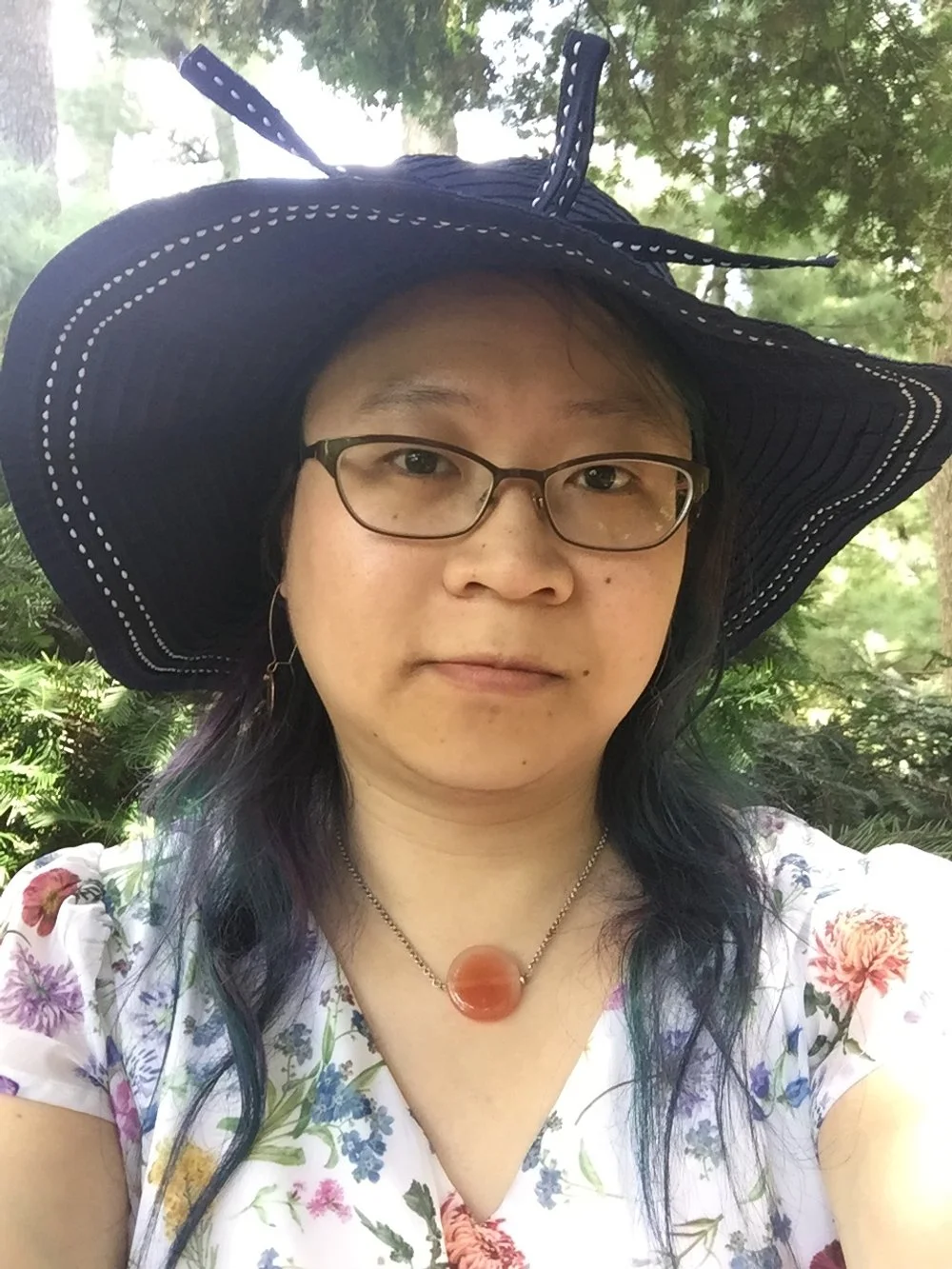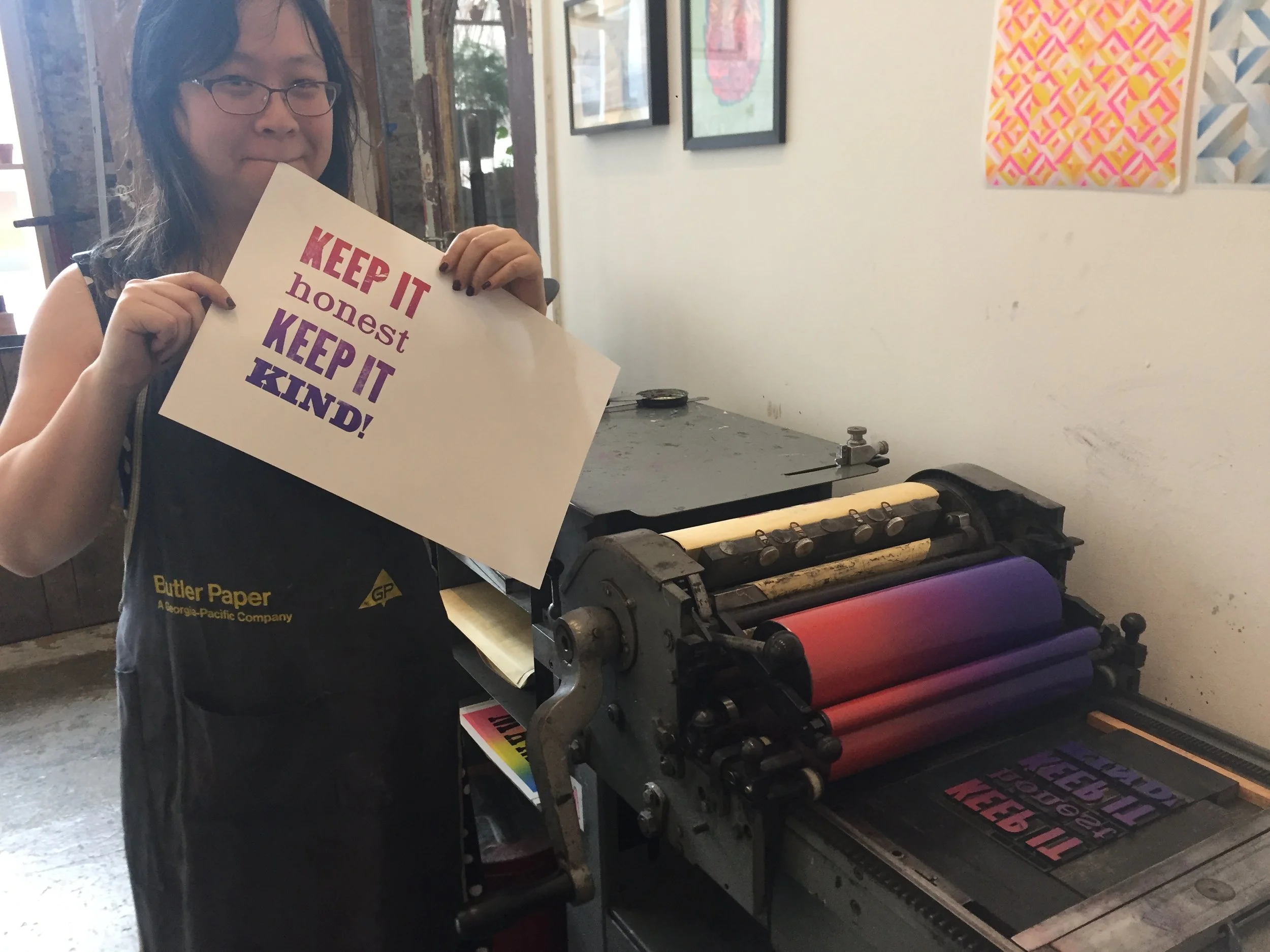"My goal as a leader is not to be the person with the best ideas or the most expertise, but the person who creates the conditions for the team to make decisions together."- Cordelia Yu
Welcome to the Inspirational Leaders Series, a collection of short interviews with sharp, impactful leaders that I know and respect—because the business world needs more refreshing people like them.
Meet Cordelia Yu, Acting Director of Experience and Systems Design in the Office of Regulatory and Oversight Systems at GSA, the General Services Administration - an independent agency of the United States government, established in 1949 to help manage and support the basic functioning of federal agencies. She also worked with 18F, a government organization that partners with agencies to improve the user experience of government.
(Note: This interview has been lightly edited for length and clarity.)
What have you learned about the importance of purpose for teams and how to keep them connected to it?
I think purpose makes two particular things a lot easier. First, it helps find alignment when there's disagreement or complexity. Having a north star helps the team set a baseline direction. Second, it helps people navigate difficult circumstances. It's really important for those of us working in deeply impact-driven or social impact work. However, there's a scary side to this. It's often abused, especially in Tech, where purpose can be used to demand excessive work hours and personal sacrifices. In places like academia, journalism, or nonprofits, it's seen as a rite of passage. But that's one of the challenges as a leader in such spaces. We need to prevent impact-driven organizations from becoming toxic. Together, these aspects help a team dream big while staying pragmatic and tying immediate work, even if it's boring or tedious, to long-term visions. What I'm doing now matters, even if I won't be here in 30 years. I'm setting up the next person or team, and that helps everyone see that this is hard, but it's worth it.
You've highlighted how purpose can sometimes be misused. Specifically, it can lead to the neglect of the well-being of the people working towards that purpose, disregarding their need for rest and a life outside of work.
One of the clearest examples that comes to mind is Elon Musk and SpaceX. During one of the first launches, he criticized an engineer for taking time off for the birth of his child. That's a prime example, right? It shows that while purpose is amazing, it's also a double-edged sword. Especially for those of us who dive headfirst into challenges, it's easy to neglect self-care.
What’s a challenging experience that shaped your perspective on leadership and how you approach it?
There are so many aspects to this, but what has been on my mind a lot recently is how my past traumas, whether they're related to work or childhood, have an impact on my decision-making process. It's a bit of a mixed bag. On one hand, these experiences have given me empathy for the people on my team and those I work with. But on the flip side, I've noticed that I sometimes have immediate reactions that might smooth things over in the short term but may not be ideal in the long run.
This realization led me to the concept of 'shadow work,' which is about internal healing. It's essential for me to show up effectively, especially when making tough decisions. I tend to be a leader who avoids conflict, but being a good leader often means confronting it head-on. There are various factors at play, like power dynamics, other people's traumas, limited resources, internal politics, and competing interests, which can make it challenging to come to productive solutions.
When faced with these situations, I notice anxiety in the pit of my stomach, my heart racing, and a strong desire to avoid. In the earlier stages of my career, I would often avoid or acquiesce, even if it wasn't the right decision. However, I've learned that I need to engage in 'shadow work,' seek therapy, and find coaches who can guide me through these challenges. Sometimes, there's no perfect solution, but blindly following what others say isn't the answer either. As a leader, sometimes the most I can do is practice harm reduction and support my team in coping with difficult situations. It's essential to take care of myself, not just in the sense of daily tasks like cooking and cleaning but also in doing the inner work. Am I reacting from a place of trauma, or am I responding as my higher, more mature self? This lesson was particularly challenging for me.
Tell us more about that lesson.
If I'm not aware of how I'm responding, like when my body goes, 'You've got to run now,' I'm not going to be the leader my team needs me to be. I'm not going to be able to make the hard, difficult decisions, or I'm not going to be able to support people through conflict, right? I'm just going to keep trying to avoid it. I'm going to say different things to different people to make them feel better, but not necessarily solve a problem.
Absolutely, inner work and self-awareness are crucial for effective leadership. It's great to see more conversations about therapy and coaching these days, creating a space where leaders can openly discuss taking care of their mental well-being.
Yeah, I intentionally have my therapy on my work calendar entirely visible to everyone for that reason. Hey, this is why it's here. You can see it. We can talk about it. We don't need to, but like, that means you can do it. It's a very intentional decision. That's amazing.
Let's talk about influence in leadership. How have you learned to shape key decisions and directions within your organization?
I think the most effective strategy I have, which draws from my previous experiences and what I've noticed recently, is to view it as less about influencing key decisions and more about redistributing power within the team. When a person first joins my team, or even during the recruiting and hiring process, I emphasize three crucial aspects of my leadership approach:
Firstly, radical openness – I'm committed to sharing as much information as I can, sometimes even more than may seem necessary. Secondly, a constant awareness of power dynamics, whether it's within my team or between my team and external parties. And thirdly, a focus on community care by decentralizing power within the team. I see myself as a leader who doesn't dictate what others should do but as someone who has received power and chooses to delegate it.
In my view, a leader's role isn't about having the best ideas or the most expertise; it's about creating an environment where the team collectively makes decisions.
To facilitate this, I employ a method I call the 'facilitate conversation method,' which breaks down group decision-making into four parts. First, we start with the objective – understanding the reality we're dealing with, the facts, and the experiences within our team. The second part is reflective – exploring our emotional responses and feelings about the situation. The third part is interpretive – considering the possibilities and potential directions, whether they're ambitious dreams or practical solutions. And the fourth part involves making decisions based on these possibilities, determining our course of action for the sprint or the project.
I approach leadership this way because design isn't solely about creating a product, it's about creating the conditions for something to emerge. I don't aim to be the smartest person in the room; everyone brings their expertise. My goal is to get everyone's best ideas and have everyone stitch it together because that's going to be more sustainable. For me, that's going to result in more buy-in from the team. Everyone shares that common purpose and vision.
Your leadership style, as I see it, is unique in that it's not ego-driven, and it's very human-centric. It's about embracing our shared humanity and creating conditions for effective teamwork. Can you elaborate?
It's a conversation I often have with everyone, regardless of whether or not I'm their supervisor. It's a discussion about the kind of leader they aspire to be. So often, leadership is seen as a zero-sum game where if I'm a leader, you're not. However, what I've learned is that everyone has a different definition of what kind of leader they want to be. When people approach leadership this way, they can support each other in ways that I alone would not be able to achieve. It becomes a collective effort where everyone lifts each other up, enabling individuals to aim for more significant achievements and find support within the team.
What's one thing you really hope people walk away with when they have worked with you? What do you hope is the thing that will stick?
What a delicious question. I think it is: you don't have to hide core parts of yourself to be a good leader, and you don't have to do it all alone. That doesn't just mean within your team, but also in the larger context of our roles. Not completing something doesn't mean it won't be finished, as we collaborate with those who came before us and those who will come after us. This perspective reduces a lot of the pressure in this work. I am not the person to do everything; I am the steward.







